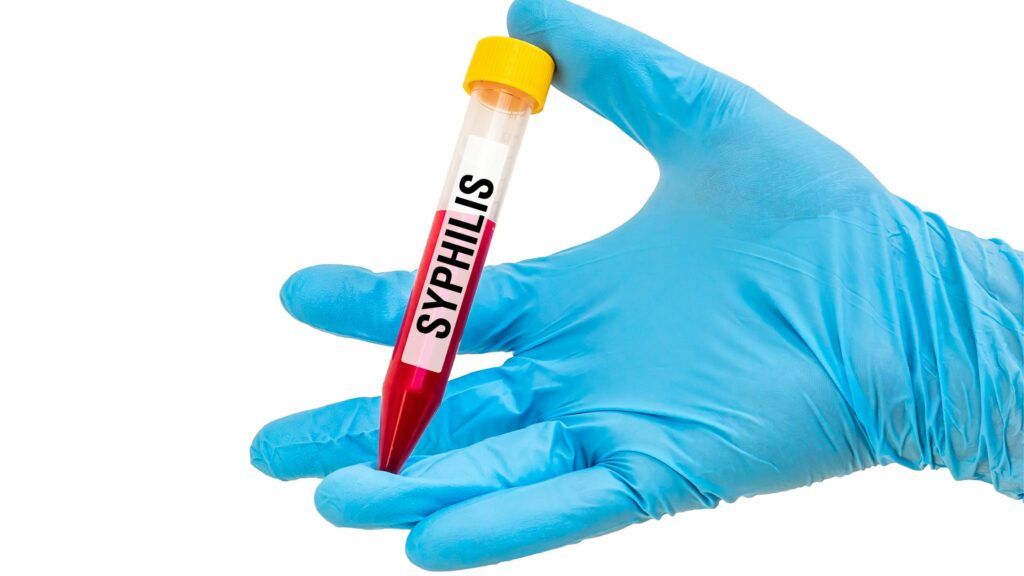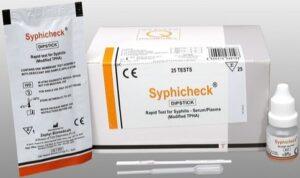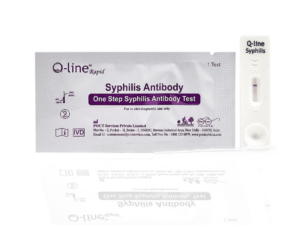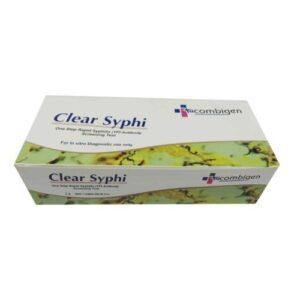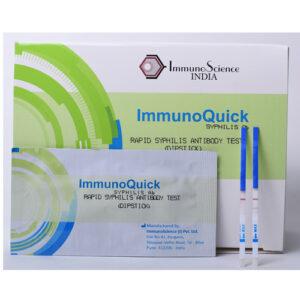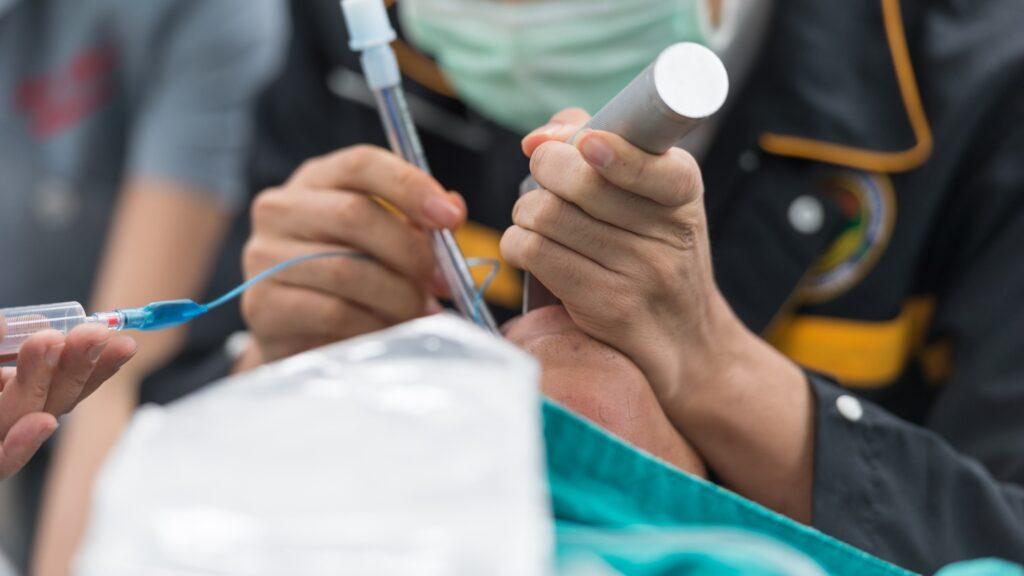Welcome to a blog on syphilis test kits—an essential tool in the battle against this sexually transmitted infection. In this blog, we will explore the benefits and functionalities of various syphilis test kits, highlighting their rapidity, accuracy, and convenience. Join us as we dive into the world of syphilis testing and uncover the importance of timely detection and treatment. Discover the power of Medzell, a pioneering B2B platform that is transforming the promotion of Indian medical devices in emerging markets. With its innovative approach, Medzell is revolutionizing global healthcare access and ensuring the availability of advanced medical technologies worldwide.
Understanding Syphilis: An Overview
Before delving into the world of syphilis test kits, it’s crucial to understand the basics of this sexually transmitted infection. Syphilis, a sexually transmitted infection (STI), is characterized by its complex nature and potentially serious consequences if left untreated. It is caused by the bacterium Treponema pallidum. The infection progresses through multiple stages, each presenting different symptoms and risks. Early symptoms often include painless sores or ulcers on the genitals, anus, or mouth. However, syphilis can also be asymptomatic, making regular testing crucial. Early detection is paramount, as untreated syphilis can lead to severe complications, affecting vital organs and the nervous system. Timely diagnosis and appropriate treatment with antibiotics are essential for managing the infection and preventing its spread. Promoting awareness about syphilis and practicing safe sexual behaviors are key to reducing its prevalence.
Types of Syphilis Test Kits
A variety of syphilis test kits are available for the accurate detection of this sexually transmitted infection. The frequently encountered categories encompass rapid syphilis test kits, treponemal test kits, and point-of-care syphilis tests.
Treponemal Tests
- Treponemal Pallidum Particle Agglutination (TPPA) Test: This test detects antibodies against the Treponema pallidum bacterium. It’s commonly used as a confirmatory test after a positive result from a non-treponemal test.
- Fluorescent Treponemal Antibody Absorption (FTA-ABS) Test: Similar to TPPA, this test detects antibodies against T. pallidum. It’s often used as a confirmatory test for syphilis.
Non-Treponemal Tests
- Venereal Disease Research Laboratory (VDRL) Test: This test detects antibodies produced by the body in response to syphilis infection. It’s used to screen for syphilis but may have false positives in certain conditions.
- Rapid Plasma Reagin (RPR) Test: Like the VDRL test, the RPR test detects antibodies against syphilis. It’s a common screening test but can also have false positives.
Enzyme Immunoassay (EIA) Tests
- Enzyme Immunoassay (EIA) Test: These tests use enzymes to detect antibodies against syphilis. They are commonly used for screening purposes.
Point-of-Care Tests
- Rapid Syphilis Tests: These are simple, quick tests that can be performed at the point of care, such as clinics or doctor’s offices. They provide rapid results and can detect antibodies against syphilis.
Treponemal Test Kits: Detecting Syphilis Infections
Treponemal test kits are instrumental in the detection of syphilis infections by targeting antibodies produced against the bacterium Treponema pallidum. These test kits employ specific antigens derived from T. pallidum to identify the presence of these antibodies in the patient’s blood sample. The most commonly used treponemal tests include
- Treponema pallidum particle agglutination assay (TPPA)
- Treponema pallidum hemagglutination assay (TPHA)
- Fluorescent treponemal antibody absorption (FTA-ABS) test.
These tests have high sensitivity and are effective in diagnosing both primary and secondary stages of syphilis. However, it’s important to note that treponemal tests cannot distinguish between active and past infections. Therefore, they are often used in combination with non-treponemal tests, such as the rapid plasma reagin (RPR) test or venereal disease research laboratory (VDRL) test, to provide a comprehensive assessment of syphilis infection. Treponemal test kits play a crucial role in accurate and reliable diagnosis, enabling timely treatment and prevention of the spread of syphilis.
Point-of-Care Syphilis Tests: Fast and Reliable Diagnosis
Point-of-care syphilis tests offer rapid and reliable diagnosis even in non-laboratory settings. Point-of-care syphilis tests provide fast and reliable diagnosis by enabling healthcare professionals to conduct immediate testing at the point of patient care. These tests are designed for simplicity and efficiency, allowing for rapid detection of syphilis infections. With minimal equipment and quick turnaround time, point-of-care syphilis tests offer convenience in various healthcare settings, including clinics, hospitals, and even remote areas with limited access to laboratories. These tests utilize advanced technologies, such as lateral flow immunoassay or immunochromatographic methods, to detect specific antibodies associated with syphilis. By providing real-time results, point-of-care syphilis tests facilitate prompt decision-making, early treatment initiation, and prevention of further transmission. Their fast and reliable nature makes them an invaluable tool in syphilis diagnosis, ensuring timely interventions and improved patient outcomes.
Specificity of Syphilis Tests: Ensuring Reliable Results
The specificity of syphilis tests is crucial in ensuring reliable and accurate results. These tests are designed to specifically detect antibodies or antigens associated with syphilis. By targeting specific markers, they minimize the chances of false positives and provide confidence in the obtained results. The high specificity of syphilis tests allows healthcare professionals to distinguish syphilis infections from other similar conditions, reducing misdiagnosis and unnecessary treatments. Reliable results are essential for appropriate patient management, timely interventions, and effective disease control. Whether it’s rapid tests, treponemal tests, or other diagnostic methods, the specificity of syphilis tests plays a critical role in accurate detection and ensuring that individuals receive the necessary care and support.
Syphilis Test Procedure: A Step-by-Step Guide
Understand the step-by-step process of syphilis testing, from sample collection to result interpretation. The syphilis test procedure follows a step-by-step guide to ensure accurate and reliable results. It typically involves the following steps.
- Sample Collection: A healthcare professional collects a sample, which can be blood, urine, or swabs from the genital area, depending on the type of test.
- Laboratory Processing: The collected sample is sent to a laboratory for processing. Specialized techniques are employed to detect antibodies or antigens.
- Test Execution: The laboratory performs the specific syphilis test, such as rapid tests, treponemal tests, or non-treponemal tests, based on the healthcare provider’s order and the individual’s risk factors.
- Result Interpretation: The test results are evaluated and interpreted by healthcare professionals trained in syphilis diagnostics. They determine the presence or absence of syphilis infection and the significance of the test outcomes.
- Counseling and Treatment: In the case of a positive result, counseling and appropriate treatment options are provided. Depending on the individual’s risk factors, recommendations for preventive measures and follow-up testing may be provided if the syphilis test yields a negative result. These personalized recommendations aim to ensure ongoing protection and monitor the individual’s health status effectively.
By following this step-by-step guide, the syphilis test procedure ensures accurate diagnosis and appropriate management of syphilis infections.
Interpreting Syphilis Test Results: Decoding the Outcomes
Interpreting syphilis test results involves understanding the various outcomes and their implications. A positive result indicates an active or past infection. Further evaluation, including confirmatory testing, may be necessary. A negative result suggests the absence of detectable antibodies, but it does not rule out the possibility of recent infection. Considering the timing of the test in relation to potential exposure is crucial to accurately interpret syphilis test results. In specific circumstances, it should be emphasized that indeterminate results may occur, requiring additional testing or ongoing monitoring. Healthcare professionals play a crucial role in interpreting and explaining these results to individuals, providing appropriate guidance for further actions such as treatment, follow-up testing, or preventive measures. Gaining a comprehension of how to interpret syphilis test results empowers individuals to make informed choices regarding their sexual health and pursue suitable care when necessary.
Syphilis Screening Guidelines: Prevention and Early Detection
Syphilis screening guidelines serve as a critical tool in identifying and managing syphilis cases before they progress and cause serious health consequences. By following these guidelines, healthcare providers and individuals can proactively address syphilis risks, ensure timely screening, and initiate appropriate interventions to safeguard sexual health. Following these guidelines enables individuals to maintain control over their well-being, fostering responsible sexual behavior and empowering them to prioritize their health. These guidelines recommend regular testing for individuals at increased risk. Early detection is crucial as it allows for timely treatment, reducing the risk of complications and further transmission.
Screening typically involves a combination of blood tests, including treponemal and non-treponemal tests, which detect antibodies and assess disease progression. Following the recommended screening frequency and adhering to healthcare provider advice is essential to ensure comprehensive and effective syphilis prevention. Understanding and complying with these guidelines empowers individuals to take charge of their sexual health and contribute to the overall reduction of syphilis transmission rates. Remember, prevention starts with awareness and proactive measures, including regular screening and safe sexual practices.
Syphilis Test Kits from Leading Indian Manufacturers
Syphicheck (Dipstick)
Syphicheck (Dipstick) is a highly reliable and precise Syphilis test kit manufactured by Tulip Diagnostics (P) Ltd in India. This self-performing lateral flow dipstick utilizes a modified TPHA method, detecting Treponema-specific IgG and IgM antibodies in human serum or plasma. It features a membrane test assembly device comprising recombinant T. pallidum antigens, colloidal gold conjugate recombinant T. pallidum antigens at the ‘Test’ region, and anti-rabbit antiserum at the ‘Control’ region. The kit includes a clearing buffer and a disposable plastic sample dropper.
Q-line Syphilis Antibody Detection Kit
Q-line Syphilis Antibody Detection Kit, developed by Q-line Biotech Private Limited, aids in the diagnosis of syphilis by detecting antibodies to Treponema pallidum in human serum or plasma. It offers superior performance with reliable results and doesn’t require highly trained staff or expensive equipment. The test is simple to perform, with easy interpretation and rapid results in just 20 minutes. It can be conveniently stored at room temperature.
Clear Syphi
Clear Syphi, manufactured by Recombigen Laboratories Pvt. Ltd., is a one-step rapid syphilis antibody screening test. It is designed for the detection of antibodies to syphilis or Treponema pallidum (TP) and must be stored at temperatures ranging from 2 to 40ºC.
ImmunoQuick Syphilis Ab Test
ImmunoQuick Syphilis Ab Test – Dipstick, developed by ImmunoScience India, is an in vitro qualitative assay for detecting anti-TP antibodies in human serum or plasma. It can detect IgG, IgM, and IgA classes of anti-TP antibodies and is available in device and dipstick (strip) formats. The test provides rapid results in 15 minutes, exhibiting high sensitivity and specificity comparable to the TPHA test. Each pack contains 25 tests.
Medzell: Revolutionizing Global Healthcare Access
Medzell is a game-changing platform that is revolutionizing global healthcare access. It serves as a futuristic B2B platform focused on promoting Indian medical devices in emerging markets. By leveraging advanced technology and strategic partnerships, Medzell facilitates the seamless distribution of medical devices, ensuring that quality healthcare reaches even the most remote areas. With a strong emphasis on affordability, accessibility, and quality, Medzell is transforming the healthcare landscape, empowering healthcare providers, and improving patient outcomes. This visionary platform is driving positive change, enabling healthcare professionals and institutions to access cutting-edge medical devices, ultimately enhancing healthcare delivery and making a significant impact on global health.
Conclusion
In conclusion, the significance of syphilis test kits in public health cannot be overstated. These kits serve as invaluable tools for early detection, enabling timely intervention and preventing the progression of this serious infection. By providing accurate and accessible testing options, syphilis test kits empower individuals to take control of their health, while also supporting healthcare professionals in their efforts to curb the spread of the disease. As we continue to prioritize preventive measures and healthcare equity, the availability and proper use of syphilis test kits remain essential in our collective journey toward a healthier and safer future.
